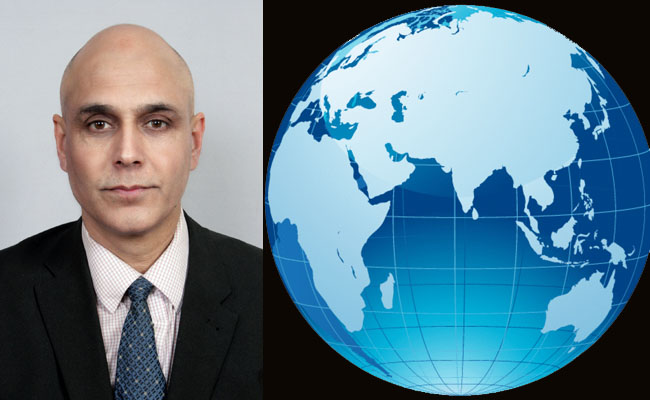By Qasim Swati (United Kingdom)
Despite the efforts made by the International Labour Organization (ILO) for setting labour standards, devising programmes and developing policies in order to improve the working conditions for workers and safeguard their rights, workers are abused and exploited in some way, in, almost, all countries of the world, whether developing and poor or advanced and rich. However, the ten worst countries for workers, globally, have been listed by the International Trade Union Confederation (ITUC) Global Rights Index 2017, are Bangladesh (for discrimination, brutality, mass arrests and police violence), Colombia (collective bargaining undermined, discrimination and murders), Egypt (state repression, discrimination and mass arrests), Guatemala (lack of due process, discrimination, murders and violence), Kazakhstan (arrests of union leaders, state repression and discrimination), the Philippines (dismissals, discrimination, repressive laws, murders, intimidation and violence), Qatar (exclusion of migrants from labour law and forced labour), South Korea (discrimination, precarious/insecure work and repressing protests), Turkey (mass dismissals, discrimination, police brutality and mass arrests), and United Arab Emirates/UAE (migrants not included in the labour law and forced labour).
Sharan Burrow is the General Secretary of the International Trade Union Confederation, who has outlined the central or basic finding (information discovered as a result of an inquiry or investigation) of the ITUC Global Rights Index 2017, in a blog, on 15 June, 2017, regarding workers’ rights in supply chains globally.
North Africa and the Middle East are the worst places of work for employees where they have to go through slave labour. Slave labour is a sort of work done by slaves or very hard work for which people are paid very little.
Millions of workers are still treated like slaves in the Gulf States with the Kafala System in place. Introduced in the 1950’s for regulating the relationship between workers and their employers in a large number of West Asian countries, the Kafala (Sponsorship) System dominates the employment policies in such countries of the world, as the United Arab Emirates, Saudi Arabia, Qatar, Oman, Kuwait, Bahrain (countries being in the Gulf Cooperation Council) and also Lebanon and Jordan.
The Kafala System is deemed as a modern form of slavery because of empowering the sponsor (Kafeel) to fully control the migrant worker. The Kafeel or sponsor uses their unchecked control and massive power for meeting their labour needs, which makes the migrant worker totally dependent on their sponsor for living and working in the Gulf States, thus, crushing labour standards and violating human rights.
The immigration status of a migrant worker is bound by law for the entire period of their contract to a single sponsor (Kafeel) or employer, under the Kafala System.
The Kafeel is in full control of many activities of the migrant worker, like leaving the country, transferring employment and entering the country for any reason. The migrant worker has to get the permission of their Kafeel for entering and leaving the country or changing their job.
Having a sponsor or Kafeel is a must for a migrant worker to enter the destination country and be tied to the same Kafeel for the rest of their stay there. This is the duty of the Kafeel to inform the immigration authorities, in case the migrant worker quits or make sure that the employee leaves the country at the end of their contract. Even the Kafeel, most probably, confiscates the travel documents and passport of the migrant worker for having a maximum grip on the latter.
The Kafala System leaves the migrant workers in an insecure, unsafe and vulnerable situation with the fear and threat of arrest, detention, unpaid wages and, finally, deportation, if they leave their job or make any complaint.
Although there are reports of reforms in the Kafala System in certain countries, like the UAE, Lebanon, Jordan, Oman, Kuwait, Saudi Arabia and Bahrain, but the majority of the overseas workers from Africa and Asia, particularly, Pakistan, Bangladesh, India and the Philippines, still suffer at the hands of their Kafeels (sponsors) in these countries.
The report by Sharan Burrow has held several countries accountable for violating workers’ rights, in some form, that include Saudi Arabia, Yemen, Syria, Libya, Iraq, Palestine, Zimbabwe, Nigeria, Benin, Egypt, Colombia, Bangladesh, UAE, Turkey, South Korea, Qatar, the Philippines, Kazakhstan, Guatemala, Indonesia, Ukraine, Brazil, Honduras, Italy, Venezuela, Peru, Mexico, Mauritania, Myanmar, Ecuador, Argentina, Uruguay, Germany, South Africa, Japan, Chile, Poland, Zambia, Paraguay and Burundi, among others.
Qasim Swati is a freelance journalist, writer, and human rights activist, based in the UK, and can be reached at https://qasimswati.com or mailto:info@qasimswati.com.
